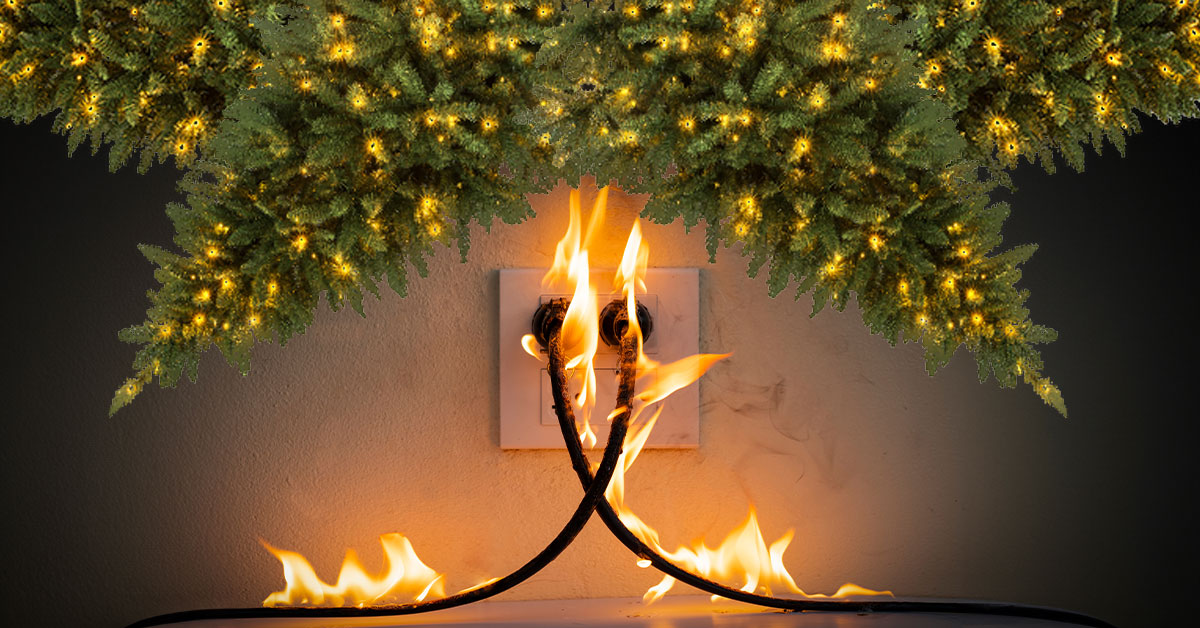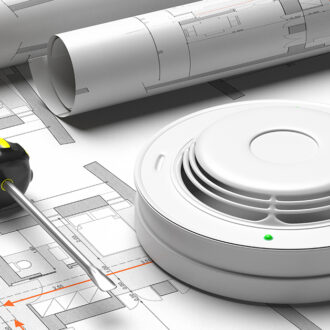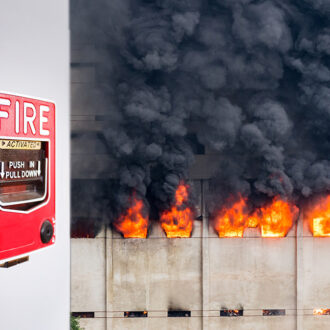ELECTRICAL SERVICES COMPANY
Electrical Hazards Unveiled: NFPA Statistics Illuminate Holiday Risks
The holiday season, a time of joy and celebration, also brings with it the sobering reality of electrical hazards. According to the National Fire Protection Association (NFPA), statistics spanning from 2015 to 2019, fire departments responded to an estimated average of 46,700 home fires annually involving electrical failure or malfunction. This staggering figure was accompanied by a harrowing toll on human lives, causing an average of 390 civilian deaths and 1,330 civilian injuries each year during the same period. The economic impact was equally profound, with an estimated $1.5 billion in direct property damage recorded annually.
The alarming statistics continue when focusing on home fires related to electrical distribution and lighting equipment. Over the same time frame, fire departments responded to an estimated average of 32,160 such incidents annually. These fires resulted in an average of 430 civilian deaths and 1,070 civilian injuries each year, inflicting an estimated $1.3 billion in direct property damage annually. These statistics emphasize the critical need for heightened awareness and proactive safety measures during the festive season to ensure the well-being of families and the protection of property.
Safety Tips to Avoid Electrical Hazards
Check Your Electrical Decorations Before Using Them
One of the first steps to avoid electrical hazards is to inspect your electrical decorations before you plug them in or hang them up. Look for any signs of damage, such as broken or cracked sockets, frayed or exposed wires, loose connections, or faulty plugs. These can cause electric shocks, short circuits, or fires if not repaired or replaced. Also, make sure that your electrical decorations have a label showing that they have been tested and certified by a recognized safety organization, such as UL, CSA, or ETL. This indicates that they meet the safety standards and are suitable for indoor or outdoor use. Avoid buying cheap or counterfeit electrical decorations from unreliable sources, as they may not have been properly inspected and could pose a serious fire hazard.
Use Extension Cords and Power Strips Wisely
Another common source of electrical hazards is the improper use of extension cords and power strips. These devices are meant to provide temporary power, not permanent solutions. Therefore, you should not run them under rugs, carpets, furniture, or across doorways, windows, or walkways. This can cause them to overheat, get damaged, or create a tripping hazard. You should also not overload them by plugging in too many devices or decorations. This can cause them to draw more current than they can handle, resulting in overheating, melting, or sparking. To avoid this, you should match the power requirements (amperage) of your electrical decorations with the amperage rating of the extension cords or power strips you are using. You should also limit the number of consecutive strings of lights you plug in together, as this can also increase the wattage load and cause overheating. Follow the manufacturer’s recommendations on how many sets of lights can be connected safely.
Keep Electrical Decorations Away from Heat Sources and Water
Another way to avoid electrical hazards is to keep your electrical decorations away from heat sources and water. Heat sources, such as fireplaces, candles, stoves, or heaters, can ignite combustible materials, such as paper, fabric, or plastic, that are part of your electrical decorations. Therefore, you should keep them at least three feet away from any open flame or heat source. You should also never leave candles unattended or near flammable items, and always blow them out before you leave the room or go to sleep. Water, on the other hand, can cause electric shocks or short circuits if it comes in contact with electrical decorations. Therefore, you should never use electrical decorations near water sources, such as sinks, bathtubs, aquariums, or pools. You should also avoid using electrical decorations outdoors if the weather is wet or snowy, unless they are specifically designed for outdoor use and have a waterproof rating.
Turn Off and Unplug Electrical Decorations When Not in Use
Finally, one of the simplest and most effective ways to avoid electrical hazards is to turn off and unplug your electrical decorations when they are not in use. This can save energy, prevent overheating, and reduce the risk of fire or shock. You should always turn off and unplug your electrical decorations before you leave your home or go to sleep, as most home fires occur at night or when no one is home. You should also turn off and unplug your electrical decorations before you handle or install them, and before you replace bulbs or fuses. This can prevent accidental shocks or burns. To make it easier and safer to turn off and unplug your electrical decorations, you can use timers, remote controls, or smart plugs that allow you to control them from a distance or with your voice.
By following these safety tips, you can avoid electrical hazards and enjoy a safe and merry Christmas. However, if you have any doubts or concerns about your electrical system or your electrical decorations, you should always consult a professional electrician.
ELECTRICAL SERVICES COMPANY NEAR ME
At Palmer Electric Company, we have been providing electrical services to Central Florida since 1951. We have the experience, expertise, and equipment to handle any electrical project, large or small. Whether you need to install, repair, or upgrade your electrical system, or you need help with your security systems or fire alarm system, we are here for you. We are also committed to providing value, innovation, and safety to all of our customers. If you need any electrical assistance this holiday season, or any time of the year, please contact us online or give us a call at (407)-646-8700. We would love to hear from you and help you with your electrical needs. Happy holidays from Palmer Electric Company!





